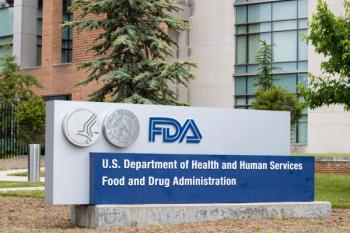
- MHE May 2025
- Volume 35
For GLP-1s and Biosimilars, Some Celebration, Some Concern, Survey Finds | MHE 2025 Pharmacy Survey, Part 3
Respondents see the glucagon-like peptide 1 (GLP-1) drugs as a major advance. They also have concerns about whether insurers can afford to cover them and about wasteful prescriptions.
The glucagon-like peptide 1 (GLP-1) drugs for diabetes and weight loss have soared to the top of the drug sales charts, but respondents to the annual Managed Healthcare Executive Pharmacy Survey see some trouble brewing amid the ascent
Fully half (50%) of the respondents to our survey indicated agreement with the statement that GLP-1s are a meaningful advance but that payers can’t afford coverage for prescriptions for everyone who might benefit from them. And just over a third (34%) indicated that they believe that many GLP-1 prescriptions are wasteful because people stop taking the drugs as prescribed. Most evidence suggests that people who take a GLP-1 for weight loss tend to gain the weight back if they stop taking the drug.
The GLP-1s include semaglutide, sold under the brand names Ozempic for diabetes and Wegovy for weight loss, and tirzepatide, sold under the brand names Mounjaro for diabetes and Zepbound for weight loss (tirzepatide has an additional mechanism of action but it is usually lumped in with the GLP-1s).
Our survey also elicited opinions about biosimilars. Almost half (45%) of the respondents indicated that they believe that the makers of the brand-name “originator” products are figuring out ways to keep biosimilars from gaining a significant market share. A smaller proportion (18%) indicated that they agreed with a statement that pointed a finger at pharmacy benefit managers, saying their formulary exclusions, rebates and other practices were the biggest impediment to biosimilars gaining market. The same proportion of respondents indicated agreement with a more optimistic statement, which said that Humira (adalimumab) and Stelara (ustekinumab) biosimilars “have tipped the balance and biosimilars will continue to gain acceptance.”
The annual Managed Healthcare Executive Pharmacy Survey was conducted online from March 10 through April 9, 2025. We had 123 respondents. The American Journal of Managed Care helped distribute and publicize the survey. The respondents were spread fairly evenly across the segments of the U.S. healthcare sector, with approximately a quarter indicating that they worked for a provider, a quarter indicating that they worked for a payer, and a slightly smaller proportion (22%) indicating they worked in higher education. The rest of the respondents said they worked for the government, a vendor or an unspecified “other” category.
Articles in this issue
9 months ago
Multiple Myeloma Treatment: The Price of Success9 months ago
Alternatives to Opioids For Pain ManagementNewsletter
Get the latest industry news, event updates, and more from Managed healthcare Executive.

























